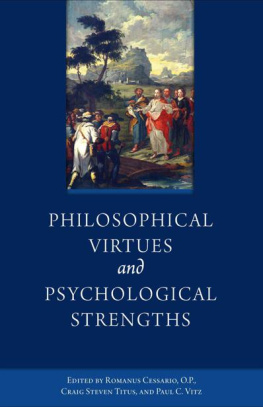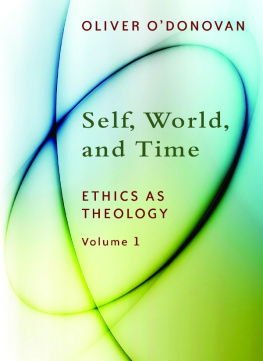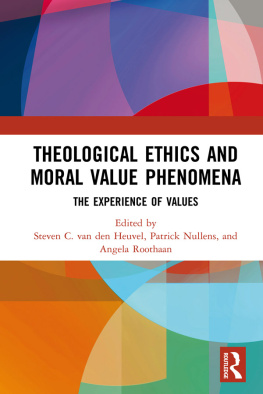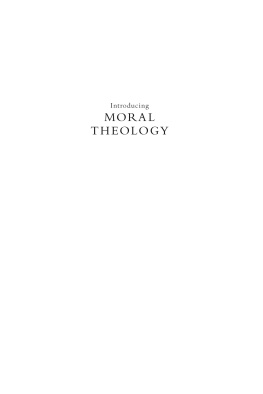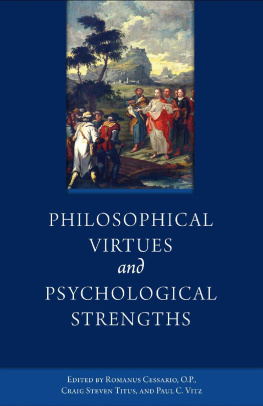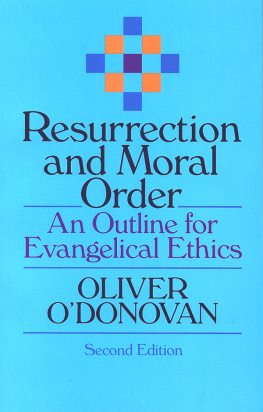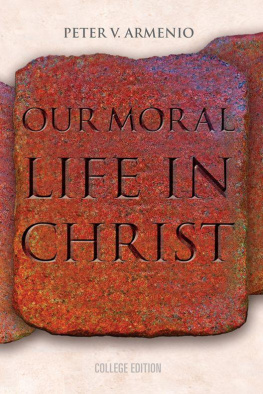THE MORAL VIRTUES AND THEOLOGICAL ETHICS
Second Edition
Romanus Cessario, O. P.
UNIVERSITY OF NOTRE DAME PRESS
NOTRE DAME, INDIANA
Copyright 2008 by University of Notre Dame
Notre Dame, Indiana 46556
All Rights Reserved
E-ISBN 978-0-268-07680-1
This e-Book was converted from the original source file by a third-party vendor. Readers who notice any formatting, textual, or readability issues are encouraged to contact the publisher at
FOR MICHAEL PAUL AND MARY GERTRUDE CESSARIO
In Piam Memoriam
CONTENTS
This new edition of The Moral Virtues and Theological Ethics responds to an ongoing interest in virtue theory, one sustained by developments in several disciplines, especially the psychological sciences, philosophy, and theology, which have occurred since the books original publication by the University of Notre Dame Press.
The preparation of this revised edition has afforded me the opportunity to take account of certain suggestions that were contained in the overall warm reviews that The Moral Virtues and Theological Ethics first received in the major theological journals. What is useful and pertinent among recent publications, including references to research in the psychological sciences, is noted mainly in the updated bibliographical information found in the footnotes and, more fulsomely, in the new chapter devoted to the present state of discussion about the human virtues. The newly composed essay, chapter seven, also considers certain official documents of the Catholic Church that bear on the discussion of the virtues and theological ethics. These include the 1992 Catechism of the Catholic Church, the 1993 encyclical Veritatis Splendor, and more recently in 2005, the first encyclical of Pope Benedict XVI, Deus Caritas Est. Drawing on these documents that interest religious and all people of good will, the new concluding chapter aims to illustrate the perennial value of theological instruction about the moral virtues for safeguarding human life and society.
I express my gratitude for the initiative taken by Chuck Van Hof on behalf of this revised edition, and also to the other gentle people at the University of Notre Dame Press who have made for more than a decade and a half the first edition available to their readers, especially to teachers, who, I am told, continue to find The Moral Virtues and Theological Ethics a valuable tool to introduce their students to the dynamics of living a happy life. It is my hope that the revised edition will augment the books attractiveness for use both in the classroom and elsewhere.
Romanus Cessario, O.P.
Boston, Massachusetts
Preparation for the present volume actually began some ten years ago when circumstances at the Dominican House of Studies in Washington, D.C., obliged me to give some lectures in moral theology. Although theological interest in the moral virtues had not then peaked, the course nonetheless enticed certain students in the Washington Theological Consortium. John Ehmann, Administrative Director of the University of Notre Dame Press, took note of this course and urged the publication of its scriptum. First of all, then, I would like to express my appreciation to Mr. Ehmann for this initiative and his subsequent encouragement. At the same time, I gratefully recognize the contributions made by the diverse theological students who, for various reasons, assisted at the lectures in Washington.
Although modern technology has moved us far beyond the collaborative methods of the medieval scriptoria, the production of a book-length manuscript still requires the work of different people. I am grateful, then, to Robert Twele, O.F.M. Conv., and Stephen Dominic Hayes, O.P., for their technical assistances and to John McIntyre, S.J., and Russell Shaw for their literary services. Daniel Bourgeois, Fraternit des Moines Apostoliques, and Peter John Cameron, O.P., also contributed verily and variously to the refinement of the text.
Finally, I owe a debt of gratitude to the Dominican Fathers at the Albertinum, Fribourg (Switzerland). During my first sabbatical year from teaching, the Prior, Guy Bedouelle, O.P., and community welcomed me with characteristic generosity and warmth, so that I was able to complete work on this project promptly, easily, and joyfully. According to established custom, I am especially happy to dedicate this study to my parents, who, during their lifetimes, gave me concrete example of the virtues, both acquired and infused.
In order to explicate what Christians believe about the moral life, theological ethics has long employed both the vocabulary and the rhetoric of virtue theory. Arguably, one can discover the substance of a well-developed theology of virtue even in the earliest patristic writers. But a fourth-century Christian apologist, Lactantius, gave the subject of virtue in the Christian life its first embellished treatment in his Divinae Institutiones. Of course, justification for this practice derives from the New Testament itself. Even a casual perusal of the Gospels and the writings of the apostles reveals the specificity of Christian teaching on the virtues. In general, the New Testament presents virtue as an interior principle of the moral life which directs the individuals relationship with God and with neighbor. As such, Christian virtue remains a stable reality, something which firmly establishes in the believer the capacity to accomplish those deeds which are worthy of the Kingdom of God.
To cite but a single example, consider the parable of the wise and foolish maidens (Mt 25:113). Jesus compares those ready to welcome the reign of God with five prudent maidens, whose virtuous character primed them even for the unexpected arrival of the bridegroom. The principal point of the parable illustrates the kind of preparedness Jesus expects of his disciples, but the wise or prudent maidens also represent all those who possess the ensemble of virtues which characterize a complete Christian life. The burning oil lamps which they carry into the wedding feast symbolically portray Christian wisdom, the crown of the other gifts of the Holy Spirit and of the infused moral virtues. This Christian wisdom empowers all those who embrace prudence and the other moral virtues to fulfill the requirements of an integral and holy life. At the same time, the wise maidens present themselves as both qualified and eager to enter into the company of Christ. As a biblical symbol, the marriage feast represents beatitude, the definitive embrace of divine love for the creature, which constitutes the final perfection that Christian belief and practice achieve in each one of us.
The New Testament authors may use the term virtue sparingly, but, as in so many similar cases, the substance of the concept pervades their moral teaching. Moreover, ample documentation exists to show that some of the earliest moral instruction in the Church uses the language of virtue. In fact, St. Augustine spoke about the virtue of Christ himself as the principal support of the believers whole life. Clearly, St. Augustine understood the controlling truth of the Christian religion, namely, that our lives find fulfillment only by following the rhythm which Christ himself establishes.
This book provides a general introduction to the study of the Christian moral virtues. It is a practical book, which purports to help the interested reader establish the rhythm of Christ-centered virtue in his or her own life. By and large, Christians are accustomed to examine their conscience by referring to the Decalogue and, for Roman Catholics, to the commandments of the Church. Contemporary debate about the principles of moral theology, the role of an ecclesiastical Magisterium, the prerogatives of personal conscience, and other matters have surely altered the manner in which the believer undertakes this examination of conscience. Even though revisionism interprets rules differently from the procedure endorsed by pre-conciliar casuistry, revisionist moral theology still remains rule-centered. Because neither casuistry nor revisionism figure largely in the present study, this book represents a fresh approach to theological ethics.
Next page

